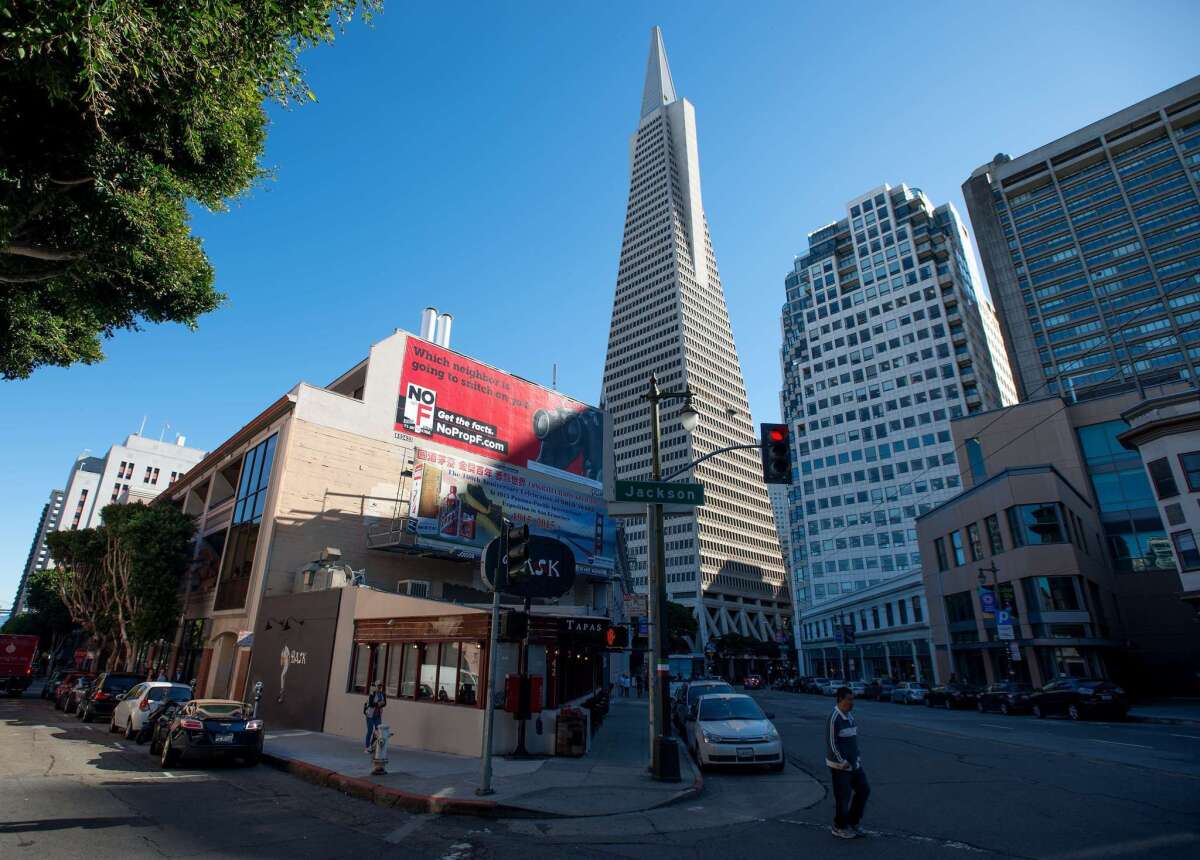Airbnb wins in San Francisco, and so does Mayor Ed Lee

- Share via
Reporting from San Francisco — Proposition F, the contentious San Francisco ballot measure that would impose tighter restrictions on short-term housing rental services such as Airbnb, lost by a sizable margin Tuesday night.
According to the city’s election website, the measure was defeated, 55% to 45%, with about 133,000 votes cast and all precincts reporting.
Airbnb raised more than $8 million to oppose Proposition F and put up a series of controversial billboards that touted the $12 million the company has generated in city hotel tax revenue. Supporters of the measure raised about $800,000.
Voters easily gave Mayor Ed Lee a second term after he faced scant opposition, and threw out Sheriff Ross Mirkarimi after one term. Several other housing-related measures were also on the ballot in a city where the median monthly rent for a one-bedroom apartment is $4,000.
But it was the so-called Airbnb measure that generated wide interest beyond the city as well as fierce debate among local residents. On Monday, protesters in support of the measure stormed the Brannan Street headquarters of Airbnb.
The measure would have capped rentals at 75 days a year, whether or not they are hosted (meaning that the resident is at home during the renter’s stay). Current city law limits rentals to 90 days a year for unhosted rentals, while hosted rentals face no such limit.
Proposition F would also have allowed “interested parties” such as neighbors or landlords to sue short-term rental companies such as VRBO and Airbnb if they violate the new rules.
The tsunami of anti-Proposition F cash dwarfed the war chest of supporters.
That gap in funding was “maybe the thing that most convinced me” to support the measure,” said Michael Reiner, 24, an advertising industry freelancer who has lived in San Francisco for two years. “It just seems that we need to keep big corporations in check.”
But opponents blasted the ballot initiative as a poorly crafted scapegoat for concerns about a housing crisis whose roots are deeper than the recent arrival of short-term rental platforms.
The measure “disingenuously asserts [that] it addresses the housing crisis, said Patrick Hannan, campaign manager for No on Proposition F. “Thousands of apartments will not suddenly become available.”
Some voters agreed, with the battle lines in some cases drawn between landlords and tenants.
Russian Hill resident Gary Hermansen, 59, rents his property to long-term tenants, but has in the past listed a unit on VRBO, which would also be subject to the new law. He voted against Proposition F, calling the idea “hollow.”
“Everyone loves using Airbnb, and they’ll say they always use Airbnb no matter where they go -- as long as it’s not in their neighborhood,” he said.
Mirkarimi, who has been sheriff since 2012, was defeated by former Chief Deputy Sheriff Vicki Hennessy by a wide margin.
Mirkarimi’s tenure was dogged by controversy, beginning with a New Year’s Eve domestic violence incident involving his wife that prompted a city ethics investigation. He later pleaded guilty to a misdemeanor count of domestic violence but the Board of Supervisors voted to keep him in office.
Mirkarimi faced criticism after Kathryn Steinle was killed along the city’s waterfront, allegedly by a Mexican citizen who was in the U.S. without legal authorization and had been deported several times.
See the most-read stories this hour >>
A union representing sheriff’s deputies blamed Mirkarimi for implementing a policy that limited communication between the Sheriff’s Department and U.S. Immigration and Customs Enforcement. The union endorsed Hennessy in Tuesday’s election.
Among other housing-related ballot measures, Proposition I -- which would place a moratorium on market-rate housing development in the Mission District for at least 18 months -- lost by 57% to 43%.
Proposition A, a $310-million affordable housing bond backed by Lee, was approved, winning about 73% of the vote. The measure needed a two-thirds majority for passage.
And voters gave wide approval to Proposition D, which would increase waterfront height limits and allow the San Francisco Giants to develop land next to AT&T Park. The measure passed 73% to 27%, with more than 132,000 voters casting ballots.
The mixed-use Mission Rock development is expected to include eight acres of parks and 1,500 rental apartments, of which 40% will be available at below-market rates.
Hamilton reported from Los Angeles, Romney from San Francisco.
For breaking news in California, follow @MattHjourno
For news from Northern California, follow @leeromney
ALSO:
Houston voters reject LGBT equal rights measure
Heavy snows in Sierra Nevada raise hopes of relief from drought
Taco Bell executive charged in attack on Uber driver
More to Read
Sign up for Essential California
The most important California stories and recommendations in your inbox every morning.
You may occasionally receive promotional content from the Los Angeles Times.












